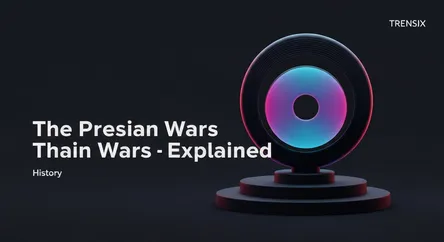History
The Persian Wars Explained

A look at the Greco-Persian Wars, the pivotal conflict that saw Greek city-states clash with the Persian Empire, shaping the course of history.
What is it?
The Greco-Persian Wars were a series of conflicts between the vast Achaemenid Empire of Persia and a coalition of Greek city-states, lasting from 499 to 449 BCE. Sparked by the Ionian Revolt in Persian-controlled territory, the wars escalated into two full-scale invasions of Greece. These invasions are famous for legendary battles such as Marathon, the Spartan stand at Thermopylae, and the decisive naval victory for the Greeks at Salamis. Despite being heavily outnumbered, the Greek alliance ultimately repelled the Persian forces, ending Persia's westward expansion.
Why is it trending?
The Persian Wars remain a cornerstone of Western history because they represent a pivotal clash of civilizations. The Greek victory is often framed as the triumph of freedom and early democratic ideals over a centralized, monarchical empire. This narrative, largely shaped by ancient historians like Herodotus, has resonated for centuries. The conflict's conclusion also marks the rise of Athens as a dominant naval and commercial power, ushering in its "Golden Age" a period of extraordinary cultural, philosophical, and political achievements that formed the bedrock of Western thought.
How does it affect people?
The outcome of the Persian Wars profoundly shaped the modern world. By securing their independence, the Greeks were able to continue developing the philosophy, art, democracy, and science that would later be inherited by Rome and spread across Europe. The wars fostered a temporary pan-Hellenic identity, uniting rival city-states against a common foe. However, the aftermath also saw Athens transform the anti-Persian Delian League into its own empire, leading to resentment, the rise of Sparta as a rival, and the devastating Peloponnesian War that followed.